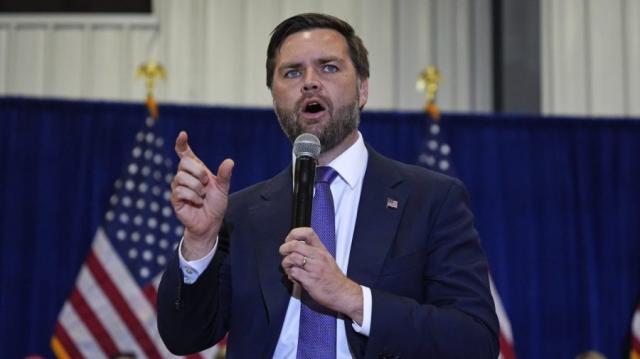Oxford Minister Nicholas Graham Addresses Cancel Culture Concerns
Concerns on Cancel Culture: Insights from Oxford’s Nicholas Graham
In recent years, the term “cancel culture” has entered everyday conversations, igniting debates that range from the halls of academia to social media platforms. It’s like a wildfire spreading across various aspects of our lives, igniting passionate discussions about free speech, accountability, and the role of public figures in society. One person who has stepped into this contentious debate is Nicholas Graham, an Oxford Minister, whose recent statements on the subject have stirred quite a conversation. So, what exactly did he say, and why does it matter? Grab a cup of coffee, and let’s dive deep into the nuances of this contemporary issue!
What is Cancel Culture?
Before we explore Nicholas Graham’s insights, it’s essential to clarify what cancel culture actually is. Essentially, it refers to the phenomenon where individuals or groups are boycotted or shamed over their actions, opinions, or past behaviors, often manifested on social media. Imagine this scenario: you say something that a group finds offensive, and suddenly, you find your voice drowned out—your reputation damaged and calls for boycotts rising.
While some assert that cancel culture promotes accountability, others argue that it stifles free speech and dissenting opinions. In essence, it’s a double-edged sword that can be wielded for both good and bad.
Nicholas Graham’s Standpoint
Nicholas Graham, an influential figure within the Oxford University community, has recently voiced concerns about the implications of cancel culture, especially its risks regarding autonomy and mental health. His arguments reflect a deep understanding of the dynamics in play, emphasizing the impact on individuals who may feel marginalized or silenced.
In Graham’s view, the surge of cancel culture overlap with mental health issues, especially among younger generations. He notes that the fear of being “canceled” can lead to anxiety and a sense of isolation. Imagine being at a dinner party where everyone suddenly stops talking the moment you share your thoughts. It’s uncomfortable, right? Now translate that feeling to social media, where the whole world watches—yikes!
The Mental Health Angle
Graham goes further to discuss how cancel culture can contribute to rising mental health issues. For many, especially students in academic environments, navigating expression while fearing backlash can create a toxic atmosphere. Here’s a startling thought: what if we’re so focused on silencing harmful rhetoric that we forget to foster an environment where everyone feels safe to learn from their mistakes? That’s a critical balance to strike!
The Ripple Effect on Conversations
When fear permeates communication, discussions can falter. It’s almost like cooking a meal with half the ingredients missing—something essential is lacking! Graham suggests that instead of labeling and rejecting perspectives outright, we should encourage open dialogues. Allowing space for understanding and growth could pave the way for a more inclusive environment.
Finding Common Ground
As Graham observes, the real challenge lies in pinpointing those gray areas. Can we critique someone without completely canceling them? It’s an intriguing proposition. This brings us to the concept of “restorative justice,” which focuses on reconciliation rather than punishment. Instead of marking an end to someone’s public life with a proverbial red pen, how about we start a conversation?
Academic Freedom and Expression
One of the core tenets of academic institutions like Oxford is the promotion of freedom of thought. Graham maintains that pressure stemming from cancel culture can choke off this vital spirit. Imagine walking on eggshells every time you enter a lecture hall—how would that impact learning? Students should be able to explore diverse viewpoints, even ones that they may find offensive. The real growth happens when individuals challenge themselves to engage rather than alienate.
A Call for Reflection
Graham’s discourse is an invitation for us to reflect on our own practices—are we inadvertently contributing to a culture of silence? By acknowledging human fallibility, we can cultivate a compassionate landscape where everyone feels valued. Additionally, it’s important to consider the societal implications of a single choice made by an individual; this becomes increasingly relevant in public life and academia.
Navigating the Fine Line
It’s tricky, no doubt—just think of it like walking a tightrope! On one side, we have the need for accountability; on the other, nurturing an open environment for discourse. Graham highlights the importance of this balance, pushing for a conversation about how we address accountability without compromising personal liberties and mental well-being.
Nurturing Healthy Discussions
The path forward, according to Graham, involves guiding discussions that allow for mistakes and growth. Here are some ways to foster a healthier dialogue:
- Encourage empathy: Before jumping to conclusions, understand the context.
- Model accountability: Acknowledge your own past mistakes and how you have grown from them.
- Foster resilience: Equip younger generations with the tools to discuss difficult topics without fear.
These strategies can create environments ripe for learning, understanding, and ultimately healing.
The Role of Community Leaders
Graham also talks about the responsibility of community leaders, educators, and public figures in framing these discussions. Successful dialogue hinges not just on what is said, but on how it’s communicated. Leaders must set a tone that promotes vulnerability and growth rather than fear and division.
Much like a great chef brings together diverse flavors to create a delectable dish, leaders ought to blend differing opinions to create a richer community experience. When we break bread together—figuratively speaking—it becomes easier to digest uncomfortable truths.
Conclusion
As we navigate this complex landscape of cancel culture, the insights of figures like Nicholas Graham remind us of the importance of balance in our discussions. We are reminded that every conversation has the potential to wield transformative power, but only if we approach it with understanding and compassion. The fear surrounding cancel culture shouldn’t lead us to silence but rather to a deeper dialogue where everyone is encouraged to speak, learn, and grow.
In the face of cancel culture, let’s strive to nurture environments where individuals can express themselves without experiencing fear of judgment. By embracing our shared humanity, we can build bridges instead of walls. Remember, communication is not just about speaking; it’s about inviting others to join in the conversation.
FAQs
How does cancel culture affect free speech?
Cancel culture can create an environment where individuals may feel hesitant to express their true opinions, fearing backlash or ostracism. This hesitation can stifle genuine discussions and hinder the exploration of diverse perspectives.
What are the psychological impacts of cancel culture?
The fear of being ‘canceled’ can lead to increased anxiety, feelings of isolation, and a general sense of dread when expressing opinions, particularly among younger people.
Are there any positive aspects of cancel culture?
Yes, some view cancel culture as a way to hold individuals and institutions accountable for harmful actions and remarks, pushing for societal changes that promote inclusivity and respect.
How can we create a balance in discussions about accountability and free speech?
We can encourage empathy, model accountability, and foster resilience, allowing space for meaningful dialogues that promote learning instead of alienation.
What role do community leaders play in addressing cancel culture?
Community leaders can set the tone for conversations, emphasizing growth and understanding while encouraging open dialogues that foster a sense of community rather than division.







